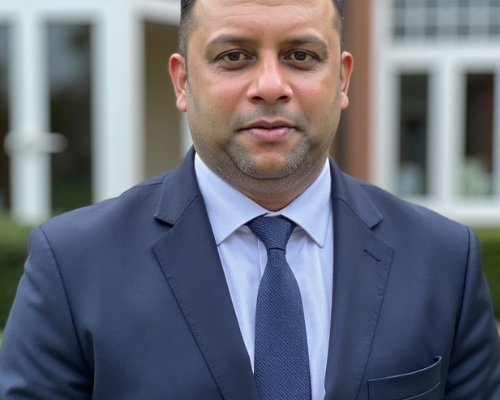
Thriving and Surviving at the Workplace
We compared the findings of a recent report on employee engagement with our own Best Law Firms to Work report.
Recently, the US-based consulting and analytics firm Gallup released its State of the Global Workplace report for the year 2023. We at Vahura spend a great deal of time thinking about employee engagement, well-being and overall job satisfaction. The Best Law Firms report (BLF), one of our flagship publications, is a result of this inquiry.
Given the overlapping concerns of both the Gallup and Vahura reports, we felt it might be a good idea to compare their findings. We compared Gallup’s latest State of the Global Workplace report with the latest edition (2022) of Vahura’s BLF report. Gallup’s report provides an extensive overview of global workplace conditions, while Vahura’s report delivers focused insights into the state of law firms in India. We noticed that the findings of the Gallup’s report validated and tracked many of the conclusions and insights of the BLF 2022.
Gallup’s report suggests that best-practice organisations aim to achieve high levels of engagement[1] through deliberate and sustained leadership efforts. These leaders focus on building strong, resilient cultures by prioritising the hiring and development of capable managers. They weave engagement into every phase of the employee and manager experience and place a strong emphasis on well-being both in the workplace and in employees’ personal lives.
The Gallup report concludes that employee engagement in 2023 at the global level was at 23%, the same as last year. While the figure is close to a record high (for instance, Gallup’s report from a decade ago recorded engagement at 14 percent), the lack of improvement and stagnation was concerning. India’s employee engagement level of 32% was not only higher than the global figure but also the South Asia figure (26%).
Even accounting for the difference in methodologies, the figure of 32% was a far cry from the 89% of surveyed professionals who had rated their firms as “positive workplaces” in the BLF report 2022. This kind of work satisfaction could perhaps be put down to the specialised and intellectually challenging nature of law firm work.
One of the primary motivating factors for professionals at law firms is the quality of the work they get to engage with. In larger firms with over 250 employees, firm reputation and compensation were key motivators. Conversely, in smaller and mid-sized firms (10-50 and 51-250 employees), culture and growth prospects became increasingly important, especially as professionals advanced in their careers.
Mental health is a key concern of both reports. Gallup’s findings indicate that globally, 20% of employees experience daily loneliness, with a marked decline in well-being observed among younger workers. In South Asia, the prevalence of daily stress, sadness, and loneliness is particularly striking, with 31% of professionals reporting daily stress, 42% experiencing daily sadness, and 29% feeling daily loneliness.
Prevalence of Mental Health Issues
- 32% face daily stress
- 35% report daily anger
- 42% endure daily sadness
Specifically in India, the data highlights that 32% of professionals face daily stress, while 35% report experiencing daily anger and 42% endure daily feelings of sadness. These findings underscore the workplace-related mental health challenges faced by professionals in the region.
Vahura’s report, too, highlights the stress experienced by professionals in law firms due to long working hours and high stakes. While law firms have succeeded in maintaining employee engagement, they have not fared well in terms of managing employee mental health. This discrepancy can be understood by recognising that employee engagement and mental health, though related, are not the same.
An employee can be highly engaged with their work, finding it challenging and fulfilling, and yet experience loneliness and stress. Poor work-life balance in a high-pressure environment that prioritises performance over emotional well-being contributes to this phenomenon. Additionally, isolation despite task engagement can lead to loneliness.
BLF 2022 indicates high levels of stress, anger, and feelings of loneliness among employees. Approximately 87% of professionals work more than 8 hours a day, with about 44% working over 10 hours on average. Among those working 12 or more hours, nearly 75% report feeling stressed and anxious during the workday. Similarly, 45% of those working between 10-12 hours also experience stress and anxiety. These findings indicate that mental health issues and stress levels in law firms may be higher than in the generalised global workplace.

The role of managers is crucial in shaping workplace dynamics. Gallup’s report emphasises that engaged managers play a significant role in fostering engaged teams, despite often experiencing elevated levels of stress and negative emotions themselves. Globally, only 30% of managers are engaged in their current workplaces. But it’s clear that their engagement significantly boosts employee engagement.
While Vahura’s report does not directly discuss manager roles, it looks at the metric of trust between partners and professionals. Law firms seem to be doing well on this front. More than 70% of professionals reported feeling trusted by their partners to perform well without excessive micromanagement, indicating positive managerial relationships.
Further, 78% of professionals reported that they were given a lot of responsibility at their firms. Of this, over 75% of professionals reported that they were very satisfied with the quality of work assigned to them and the degree of autonomy and authority that the firm reposed in them.
The rise of hybrid work models is another significant trend emerging from both reports. Gallup’s report highlights the increasing complexity of people management in hybrid work environments and the demand for more autonomy. Vahura’s findings align with this trend, revealing that 83% of professionals strongly prefer hybrid or fully remote working arrangements, as they feel more empowered and accountable in these settings.
However, a notable insight from the Gallup report reveals that fully remote employees report significantly higher levels of loneliness (25%) compared to those who work exclusively on-site (16%).
Trends from both reports point towards high attrition rates and increasing levels of job dissatisfaction. Gallup’s South Asia data reveals a significant proportion of employees actively seeking new job opportunities. Globally, 52% of professionals are monitoring or actively pursuing new job prospects, with South Asia experiencing a notable increase of 8% from last year’s numbers, bringing the percentage of active job seekers intending to leave to 58%.
High Attrition Rates and Job Dissatisfaction
- 52% of professionals globally are monitoring or actively pursuing new job prospects
- 58% of professionals (South Asia) are monitoring or actively pursuing new job prospects
Additionally, South Asia reports the lowest regional percentage of thriving[2] employees, with only 15% feeling they are thriving in their current roles. This contrasts sharply with global figures where 34% of employees feel like they are thriving.
In India specifically, 52% of professionals believe it is a good time to find a new job, aligning with the percentage actively looking to leave their current positions.
These findings echo some concerns in the BLF 2022 report. We’d found that 50% of law firm professionals were contemplating leaving their firms. The reasons cited include in-house opportunities, pursuing higher education, seeking freelance opportunities, or transitioning to different practice areas. This trend underscores the impact of unsustainable working hours and high stress levels on job satisfaction and retention in the legal sector.
One of the things we admire about the Gallup methodology is the focus on ‘thriving’. It’s a recognition that employees don’t just want to survive in the modern workplace, they want to thrive and flourish. This is a perspective which is important for the organisation to keep in mind as they create cultures of engagement and well-being at the modern workplace.
The insights from Gallup’s Global Workplace Report 2024 and Vahura's Best Law Firms Report 2022 highlight that it’s not enough for employees to feel challenged and invigorated by the quality of work on offer. To sustain their interest and motivation levels, it’s also important for organisations to provide support for their mental health and well-being. That’s what can ultimately lead to better results on measurable metrics like employee retention, productivity and organisational success.
As the workplace continues to evolve, adapting to these insights will be key for both employees and organisations to thrive amidst challenges and opportunities. If you need help with creating a culture of excellence and job satisfaction in your organisation, do get in touch with our Consulting team at [email protected].
Notes:
- According to Gallup’s report, engaged employees are “... thriving at work. They are highly involved in and enthusiastic about their work and workplace. They are psychological “owners,” drive performance and innovation, and move the organization forward.”
- According to Gallup’s report, thriving is defined as follows: “Thriving: These respondents have positive views of their present life situation … and have positive views of the next five years. They report significantly fewer health problems and less worry, stress, sadness, loneliness, depression and anger. They report more hope, happiness, energy, interest and respect.”

